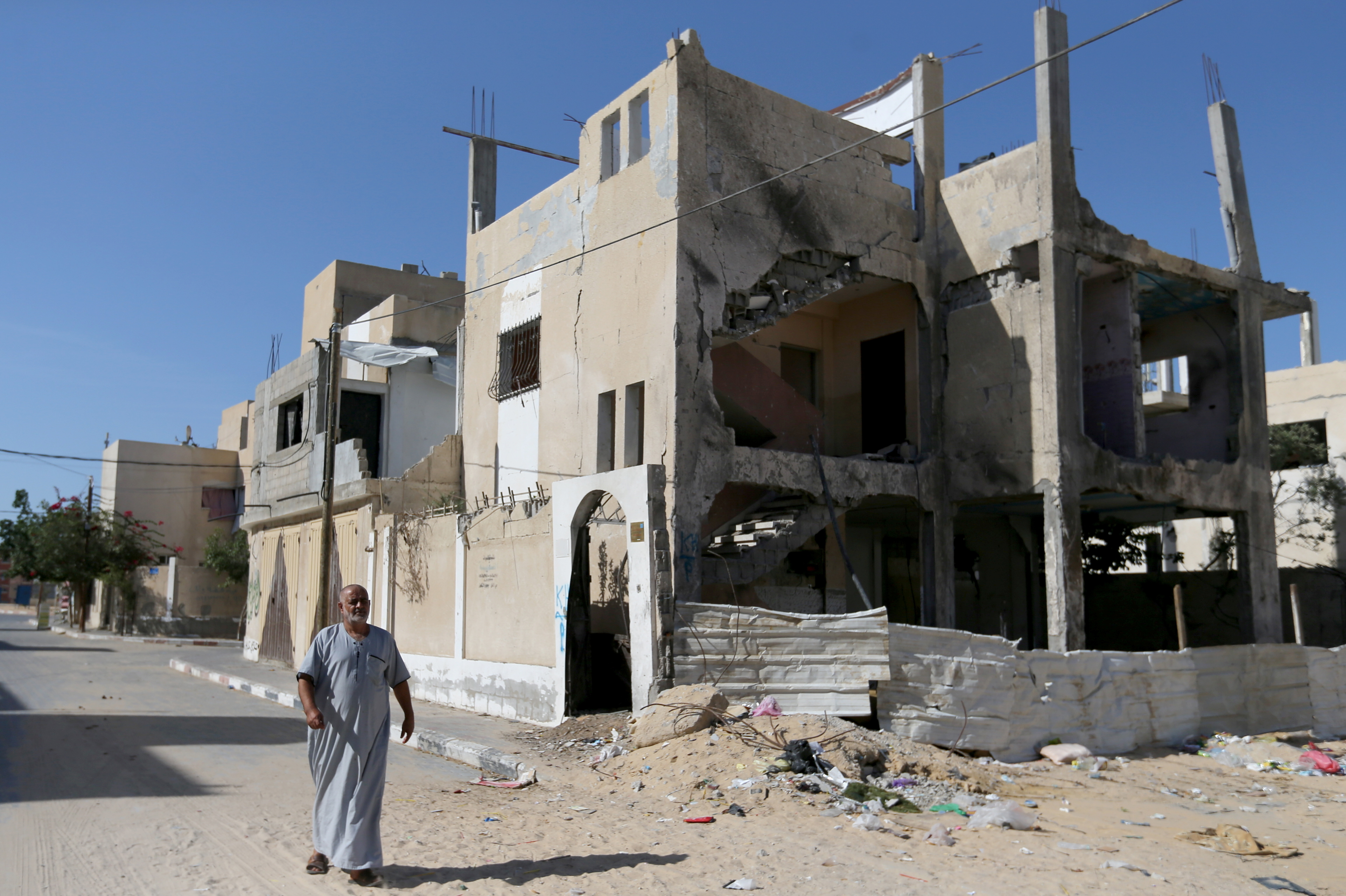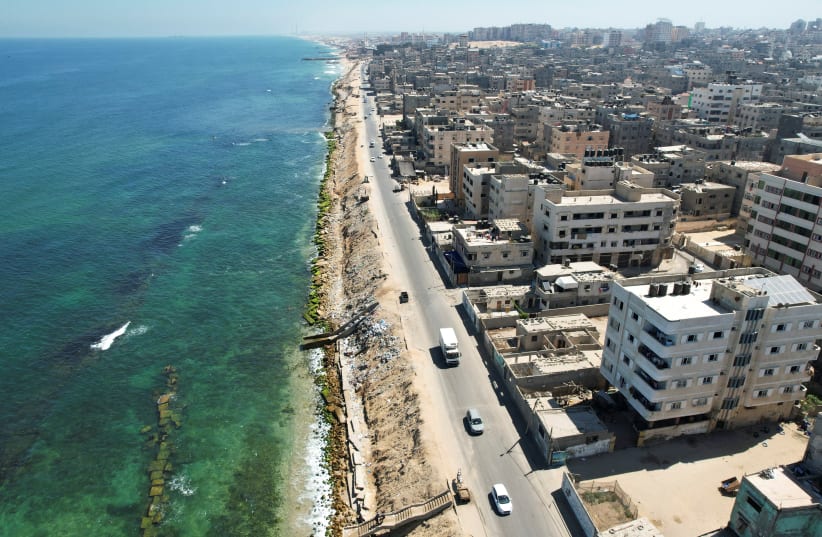No One Should Have The Right To Destroy People’s Home (Domicile) with All it Signifies
 |
| Reuters |
The widespread or systematic destruction of homes has long been a feature of modern warfare. But what is often lost in the images of rubble and statistics of destroyed buildings is the profound effect of this loss at a human level.
For a home is so much more than a structure: It is a repository of past experiences and future dreams, of memories of births, deaths, marriages, and intimate moments with our loved ones, amid neighbors and a familiar landscape. The idea of home brings comfort and gives meaning to our lives. Its destruction is the denial of a person’s dignity and humanity.
It is for this reason that the systematic and indiscriminate leveling of entire neighborhoods through explosive weapons — as happened in Aleppo, Mariupol, and Grozny, and towns in Myanmar, or most acutely these days, in Gaza — should be considered a crime against humanity. A growing number of legal and other types of scholars agree.
It’s called domicile.
 |
| , Palestine 2022} Even seemingly trivial items, often relegated to the background in photos and memories, had their significance. |
Scholars have used the concept of domicile in the context of dam projects that displaced people in Canada and warfare in Syria, and it has been used to call attention to the systematic demolition of Palestinians’ homes and the denial of permits to build new ones in the West Bank by Israel.
As an independent expert tasked by the United Nations with promoting and protecting the right to adequate housing, I believe the crime of domicile should be enshrined in international humanitarian and criminal law so that governments and armed groups can be held to account. In an increasingly urbanized world, where densely populated cities are becoming common battlegrounds, the need for such action is all the more urgent.
We all understand that killing can be a murder, a war crime, a crime against humanity or an act of genocide, depending on the gravity and intention of the act. The same should apply for the destruction of homes.
 | |
| Smoke rises after an Israeli air strike that has been going on for five days in Gaza [Ali Jadallah/Anadolu Agency] |
In Gaza, we are witnessing destruction that is overwhelming in terms of its scale and impact, and far worse than what we saw in Dresden and Rotterdam during World War II, where about 25,000 homes were destroyed in each city. In Gaza, more than 70,000 housing units have been destroyed and more than 290,000 partially damaged. Recent conflicts are all proving to be equally destructive: In parts of Aleppo, up to 65 percent of structures were damaged or destroyed in five years of conflict, while in Mariupol, approximately 32 percent of the structures were damaged or destroyed in a year over 2021 and 2022. In about three months of conflict, a shocking 60 percent to 70 percent of structures in Gaza, and up to 84 percent of structures in parts of northern Gaza, have been damaged or destroyed.
Indeed, what has happened to homes and lives in Gaza is a stand-alone crime: domicile. It may not be an exaggeration to say that much of Gaza has been made uninhabitable, as South Africa’s complaint accusing Israel of genocide at the International Court of Justice alleges and which Israel denies. The court, in a preliminary ruling on Friday, called on Israel to take action to prevent genocide in Gaza and avoid the infliction of conditions that result in physical destruction in whole or in part.
I drew the same conclusion about domicile following the Russian bombing of Ukrainian cities in my report to the U.N. General Assembly in 2022. But right now, the accusation of domicile is largely a moral judgment. The preciousness of home, unlike the preciousness of life, has little recognition under international humanitarian or criminal law.
Some may ask whether the destruction by Hamas militants of Israeli towns and kibbutzim on Oct. 7 also amounts to domicile. While such attacks may constitute human rights violations and war crimes, the destruction of homes was not systematic or widespread enough to be comparable to the examples cited here.
Cinder block buildings in various states of destruction stretch in every direction. A plume of smoke rises to the right.
The destruction of homes in Gaza has become commonplace, and so has the sentiment, “The important thing is that you’re safe — everything else can be replaced.” I do thank God that we survived. But our homes were dear to our hearts, holding many stories, our daily ups and downs and poignant memories.
Cinder block buildings in various states of destruction stretch in every direction. A plume of smoke rises to the right.
We try to console ourselves by reminiscing about happy days in the past or trying to find a glimmer of hope for the future.
As the bombs keep falling, it’s hard to see any light at the end of the tunnel.
Broken furniture and the piece of a smashed vanity fill the room. Everything is covered in a layer of pale dust.
Though attacks on individual homes, schools and hospitals can be crimes under humanitarian law, which applies to all international armed conflicts under the Geneva Conventions, the widespread or systematic destruction of homes is not by itself considered a crime in either international or noninternational armed conflicts. It is not mentioned in the Geneva Conventions or in the definition of crimes against humanity according to the Rome Statute of the International Criminal Court or in the U.N. draft articles on the prevention and punishment of crimes against humanity.
We should act to update these treaties to include domicile.
There is precedent for updating what we legally define as international crimes. The Rome Statute proscribed starvation as a weapon of war, and under a 2019 amendment, the proscription was extended to cover crimes in non-international armed conflicts.
Accountability for domicile in Gaza cannot stop with potential criminal prosecutions or declaratory judgments by courts someday in the future. The enormous cost of rebuilding Gaza and the rest of the Palestinian territories, where homes have been destroyed for decades during occupation, should be borne by Israel and the countries that contributed to this destruction, including the United States, through its supply of weapons and political support.
That rebuilding will be hard work. The restoration of destroyed cities after World War II, such as Rotterdam, took more than two decades and cost billions of dollars, funded by the Marshall Plan. Ukraine’s recovery needs after just one year of conflict were estimated at $411 billion, with housing contributing to 37 percent of the cost. Mariupol’s reconstruction alone is expected to cost more than $14 billion and take up to 10 years.
And even if Gaza is physically rebuilt, the trauma of losing homes — the shattered lives, erased landscape, and obliterated memories — will last for decades. Enshrining domiciled in law may make countries think twice about inflicting such trauma in the future.
The Times is committed to publishing a diversity of letters to the editor. We’d like to hear what you think about this or any of our articles. adamfoxie@gmail.com, subject: "your request"
Comments